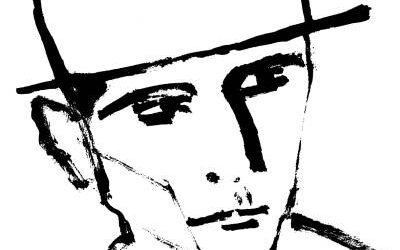
Categories
- Art (356)
- Other (3,632)
- Philosophy (2,814)
- Psychology (4,018)
- Society (1,010)
Recent Questions
- Why did everyone start to hate the Russians if the U.S. did the same thing in Afghanistan, Iraq?
- What needs to be corrected in the management of Russia first?
- Why did Blaise Pascal become a religious man at the end of his life?
- How do I know if a guy likes you?
- When they say "one generation", how many do they mean?
Well there are several important factors at once:
1) know the database. Now, fortunately, you don't have to go to university and study for 5 years if you don't plan to make books your profession. There are quite a few books that will take you to the main pillars: ancient literature, which is referenced in almost every quality book; styles; periods; iconic names. If you are interested, pay attention to the book “How to read books”, books by Evgeny and Nikolai Zharinov.
2) reading materials. The more you read, the harder it is to surprise you, the more you see between the lines.
I can speak for myself: I have been running a book blog for more than three years. Before starting this activity and the first year, I liked almost all the books that I devoured. I read and bought everything that wasn't nailed down. It's harder to surprise me now. But, most pleasantly, I can argue quite clearly what exactly confuses me in the book.
At the same time, I do not wear a “white coat” and do not pretend to be the truth in the singular. I just love books and read a lot:) I'm not a critic, I have a financial education)
Read Mortimer Adler's book ” How to Read Books. A guide to reading great works.” It describes in great detail the art of reading for the sake of understanding, its rules and methods. (The main thesis of the author: books of any complexity can be read and understood by a person with average intellectual abilities, if he develops reading skills. The great Books in question are several hundred works, from Plato and Aristotle to the 20th century, which express new ideas for humanity)
First, you need to read “light” books and each paragraph of which should be analyzed and said aloud briefly what happened:) and do the same after reading a whole chapter.
a Chinese philosopher asks a question:
…and consciousness –
where it comes from.
when do you feel its existence?
I mean, first think about what you want to analyze books with?
in the Soviet Union they analyzed the politics of the party
in the Russian empire they analyzed Christian morality
boys analyze concepts
what do you want to analyze? or how do you analyze it now?
studying philosophy, as well as all other methods of analysis, will definitely allow you to acquire an apparatus that will help you to judge the meaning of books in a voluminous way.
Analyze not the characters, but their actions. Don't forget about the cultural context. Pay attention to the name. Think about what the author wanted to convey to the reader? And to do this, it is desirable to know the biography and views of the writer.
After reading each book, you can ask yourself why it was written. The infamous annoying “what the author wanted to say” is also appropriate. This helps you understand the main idea of the book. If you have a masterpiece in front of you, then there will be more than one or even two ideas.
In my opinion, a good way to analyze books is to ask the right questions about the text. The correct ones are those that cannot be answered unambiguously. (Such is the paradox of literary studies:)) Most often, this is a question that begins with the word “why”. So the first thing I recommend is to ask as many “why”questions as possible to the text. First, you can ask your friends to do the same, for example; then you can just look at the topics of critical and scientific works on this text: topics are these very questions.�
Next — try to answer a question. But the answer must be reasoned: that is, not just “it seems so to me”, but follow from the internal logic of the text. The internal logic of the text is the most difficult part, because the text is a multi-level system. Often, when we just read books, we pay attention only to the plot — but this is not enough for a good analysis (although it is necessary, among other things). In addition to the plot, there is a system of characters, composition, frame texts (title, epigraphs), and language design. A good question is one whose answer forces us to refer to different levels of the text; a good answer is one that is formed from evidence from different levels. Of course, you won't be able to immediately expand the scope of text perception — so I advise you to start with consistent answers within the plot; then link them with other text units (for example, +character system; or �+name).
Well, it is not harmful, of course, to read criticism on the work. Most likely, the first dozen (at least) of your questions about the text have already been answered. Therefore, first answer for yourself — and then look for how the professionals coped with the same thing.